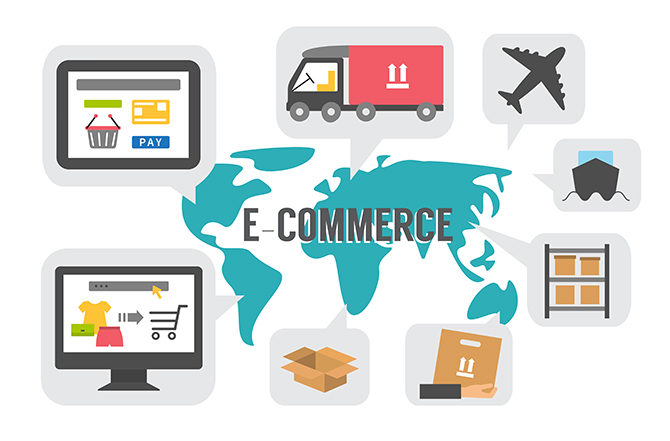Blockchain in E-commerce Security and Transparency 2025
Comprehensive guide exploring blockchain in e-commerce security and transparency 2025 with expert insights, practical strategies, and actionable recommendations for professionals and organizations in 2025.

The Evolving Challenges in E-commerce
E-commerce, while offering unparalleled convenience and global reach, is plagued by several persistent issues. Fraudulent transactions, data breaches, and a lack of transparency in supply chains are significant concerns that erode consumer trust and incur substantial costs for businesses. Traditional centralized systems, often reliant on intermediaries, are vulnerable to single points of failure and can struggle with the immense volume and complexity of modern online transactions.
Security Vulnerabilities
Cyberattacks, phishing scams, and credit card fraud remain rampant in the e-commerce space. Consumers are increasingly wary of sharing personal and financial information online, leading to cart abandonment and a preference for established, albeit sometimes less innovative, platforms. Businesses, on the other hand, face the constant threat of data breaches, which can result in severe financial penalties, reputational damage, and loss of customer loyalty.
Lack of Transparency and Trust
The journey of a product from manufacturer to consumer often involves multiple intermediaries, making it difficult to trace its origin, authenticity, and handling. This opacity fosters distrust, especially in markets dealing with high-value goods, luxury items, or products where ethical sourcing and sustainability are paramount. Counterfeit goods also thrive in such environments, further complicating the trust equation.
Inefficient Payment Systems
Traditional payment gateways, while functional, often involve high transaction fees, slow processing times, and chargeback risks. Cross-border transactions are particularly cumbersome, involving multiple banks and currency conversions, which add to costs and delays. The lack of a universally accepted, low-cost, and instant payment method hinders the seamless growth of global e-commerce.
Blockchain as a Solution for E-commerce
Blockchain technology, with its decentralized, immutable, and cryptographic nature, offers a compelling suite of solutions to these entrenched e-commerce problems. By creating a shared, distributed ledger, blockchain can fundamentally alter how transactions are recorded, verified, and managed, ushering in an era of enhanced security and unparalleled transparency.
Enhanced Security through Decentralization
In a blockchain-based e-commerce system, transaction data is encrypted and distributed across a network of computers, rather than being stored in a single, vulnerable server. This decentralization makes it virtually impossible for hackers to alter records without being detected, as any change would require consensus from the majority of the network. Cryptographic hashes link each block of transactions, forming an immutable chain that ensures data integrity. This significantly reduces the risk of fraud and data breaches, providing a more secure environment for both buyers and sellers.
Immutable Records and Fraud Prevention
Every transaction on a blockchain is time-stamped and permanently recorded, creating an unalterable audit trail. This immutability is a powerful deterrent against fraud, as it makes it impossible for malicious actors to deny transactions or tamper with order details. For e-commerce businesses, this translates to fewer chargebacks, reduced operational costs associated with fraud investigation, and increased confidence in transaction validity.
Supply Chain Transparency and Authenticity
Blockchain can revolutionize supply chain management by providing end-to-end visibility. From the raw materials to the final delivery, each stage of a product's journey can be recorded on the blockchain. Consumers can scan a QR code on a product to access its complete history, including origin, manufacturing details, ethical certifications, and transportation logs. This level of transparency combats counterfeiting, ensures product authenticity, and empowers consumers to make informed purchasing decisions based on values like sustainability and fair trade.
Streamlined and Secure Payments
Cryptocurrencies, powered by blockchain, offer an alternative to traditional payment methods. Transactions can be processed almost instantly, with significantly lower fees, especially for international payments, as they bypass multiple intermediaries. Smart contracts can automate payment releases upon fulfillment of predefined conditions (e.g., delivery confirmation), further reducing risks and increasing efficiency. This not only benefits consumers with faster and cheaper transactions but also opens up new markets for businesses by simplifying cross-border trade.
Key Applications of Blockchain in E-commerce by 2025
By 2025, several key applications of blockchain technology are expected to be mainstream in the e-commerce sector, driving significant changes in how businesses operate and interact with their customers.
Digital Identity and Customer Verification
Blockchain-based digital identity solutions can replace cumbersome login processes and enhance security. Users can control their personal data, granting access only when necessary, reducing the risk of identity theft. This self-sovereign identity model can streamline customer onboarding, improve personalization, and build stronger trust relationships between consumers and brands.
Loyalty Programs and Rewards
Traditional loyalty programs often suffer from low engagement and complex redemption processes. Blockchain can transform these programs by tokenizing loyalty points, making them easily transferable, tradable, and redeemable across multiple platforms. This increases the perceived value of rewards for consumers and provides businesses with more flexible and cost-effective ways to incentivize purchases and build brand loyalty.
Decentralized Marketplaces (DApps)
Decentralized applications (DApps) built on blockchain can create peer-to-peer e-commerce marketplaces that operate without a central authority. This eliminates intermediaries, reduces fees, and gives more control to buyers and sellers. Such marketplaces can foster greater competition, offer niche products, and provide a more equitable trading environment, particularly for small businesses and artisans.
Intellectual Property Protection
For creators and sellers of digital goods (e.g., art, music, software), blockchain can provide an immutable record of ownership and creation. Non-Fungible Tokens (NFTs) can represent unique digital assets, ensuring authenticity and preventing unauthorized copying or distribution. This is particularly relevant for the growing market of digital collectibles and creative content within e-commerce.